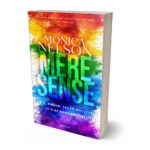Most people experience some form of regret. Regret is a powerful emotion that infiltrates our everyday lives in destructive ways – if we allow it to.
HSPs, with our enhanced empathy and depth of processing traits, can struggle even more than the average person with regret. On the other hand, we are in a unique position to use our traits to do good.
Most HSPs I know are truth seekers. Whether we are born that way, or we come to it through our challenges as a sensitive person, we seek out authenticity. In a world becoming more materialistic, narcissistic, and exploitative, regret serves as a wonderful tool for change. If we are to be instruments of that change, we must set an example for others to follow.
To lead by example, we must effectively deal with the two sides of our regret.
The Negative Side
Regret tends to threaten our self-esteem, throw roadblocks in front of our goals, and push us to lose patience with others. Getting past that guilt and shame of an incident that we regret is critical before we can become an example to others.

Remember that you tend to be much harder on yourself than the average person is. Back off. Recognize the inner voice when it starts to nag at you. Stop it in its tracks. When your inner critic tells you that you are stupid, fight back. Tell it “I am not stupid. I have many fine qualities.” Develop your awareness to pick up on when this occurs – this will help you catch it so you can stop it before it gets you down.
As a sensitive, your boundaries are naturally thinner. We struggle more with setting clear boundaries than 80% of the population. Being vigilant to set clear boundaries helps us to stop taking on guilt and regret that doesn’t even belong to us.
Guard against the regret of accepting guilt thrown on us by others. Being “too sensitive” is not a negative. It is a gift, and not a cause for regret.
Regret is often the result of shame. Dr. Elaine Aron has a wonderful article on her website on shame. Read it here.
You might also find my article Three Positive Aspects of Regret and How to Attain Them helpful.
The Positive Side
Regret is our barometer for the ways in which people treat each other badly. As a social society we tend to take our opinions from the majority. Doing right by others needs to return to the forefront of our collective values. You can be instrumental in that cause.
Here are some suggestions on how to turn regret into a positive:
- Talk to people, listen with compassion;
- Write articles to inform;
- Stand up for injustice;
- Volunteer for just causes;
- If you have a gift for settling arguments; get involved in mediation.
Of course, you must take care of yourself as you give of your gifts. As sensitives, we tend to give unselfishly. The result can be exhaustion or burn out. While this makes a valuable commodity, it also means we must know our limits.
Setting an example works because you can only sway public opinion by leading with courage. Truth seekers and other HSPs, using their empathy and depth of processing are able to lead us into a future of fair and compassionate dealings with each other.
Copyright 2021, Monica Nelson








